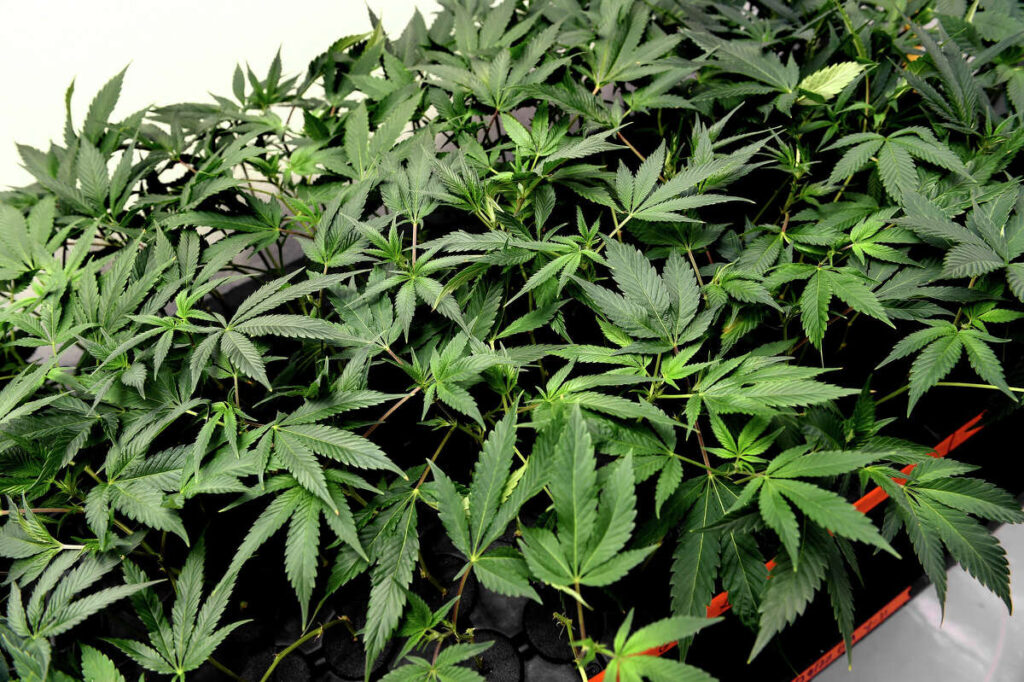As Connecticut celebrates its first 4/20 since the legalization of recreational cannabis, activists are calling for “justice” for those in prison on marijuana-related charges.
It’s the first time Connecticut recreational cannabis users can spend April 20 smoking product purchased at retail location within the state’s borders.
April 20 — 4/20 — is a nationwide celebration of cannabis, a plant that remains illegal at the federal level, but is now legal for use and purchase in Connecticut. But, the meaning of the day varies wildly depending on who you ask.
There are multiple origin stories for the holiday ranging from a group of high school students in California who used to smoke each day at 4:20 p.m. A second explanation suggests 420 was the California police code for marijuana offenses.
Benjamin Zachs, chief operating officer of Fine Fettle, which owns several Connecticut cannabis retailers, including the state’s first social equity joint venture in Manchester, said he considers 4/20 a celebration.
“There’s a lot of colloquial history in it, but 4/20 has become sort of a celebration of cannabis day, I think, for those who are consumer-interested and consuming,” Zachs said. “It has become a very big day in the industry.”
For some Connecticut activists, the day is a chance to highlight that despite cannabis’ legal status, the road is far from finished for those in prison on marijuana-related charges.
“I would explain 4/20 as a day to celebrate all the wins, but also to bring to light the things that we feel are important, which are free the people, free the plant,” said Joseph Accettullo, of Hamden. “The plant has to be totally decriminalized and we have to have the social justice parts of legalization done before more people are able to profit off the planet. And that’s the real message of 4/20.”
Accettullo is a part of CT CannaWarriors, a group of advocates pushing for legislation that would release people who are still imprisoned on cannabis-related offenses and prioritize justice for victims of the war on drugs.
“For me, it’s remembering that the plant itself has created all these miracles — that it’s been oppressed, that the people who chose it and maybe not even those who only chose it, but those who needed it so badly, were persecuted and investigated, terrorized to some degree, for their use or acquisition or possession, or even sharing of that natural substance that has been so positive,” said Christina Capitan, of East Windsor, leader of the CT CannaWarriors.
The CannaWarriors, along with advocates with Hartford-based BLM860 will rally at the Capitol Building on April 20 from 11 a.m. to 4 p.m. There will be a cookout afterwards. The rally is a reminder that the legalization of adult-use cannabis in Connecticut did not remedy the issues of the past, according to Ivelisse Correa, co-chair of Black Lives Matter 860.
Correa said her father was incarcerated for three years after being caught with “roaches” or burnt joints.
“The state of Connecticut locked my father up and sent him a bill,” Correa said. “That’s why it’s important to me because I feel like state of Connecticut owes me and everyone else in the hood.”
The Last Prisoner Project is a national nonprofit working to release people who are incarcerated for cannabis offenses. In Connecticut, Sarah Gersten, executive director and general counsel for the Last Prisoner Project, said it’s hard to say how many offenders are still behind bars despite the legalization of cannabis.
“No one knows it right now,” the West Hartford resident said. “Asked the state to get that number, and they have so far declined.”
Gersten hopes this 4/20 is a chance to raise awareness to the inequalities that still exist.
“I’ve certainly met people in Connecticut, that truly don’t know that when we legalized, we didn’t release everyone,” Gersten said. “We didn’t drop pending targets, we didn’t do a lot of the things we still need to do to repair the harms of prohibition and the war on cannabis. And so using 4/20 as an opportunity to do that is certainly really important for us as an organization and I think more and more cannabis justice champions are doing that.”
H/T: CTinsider.com



